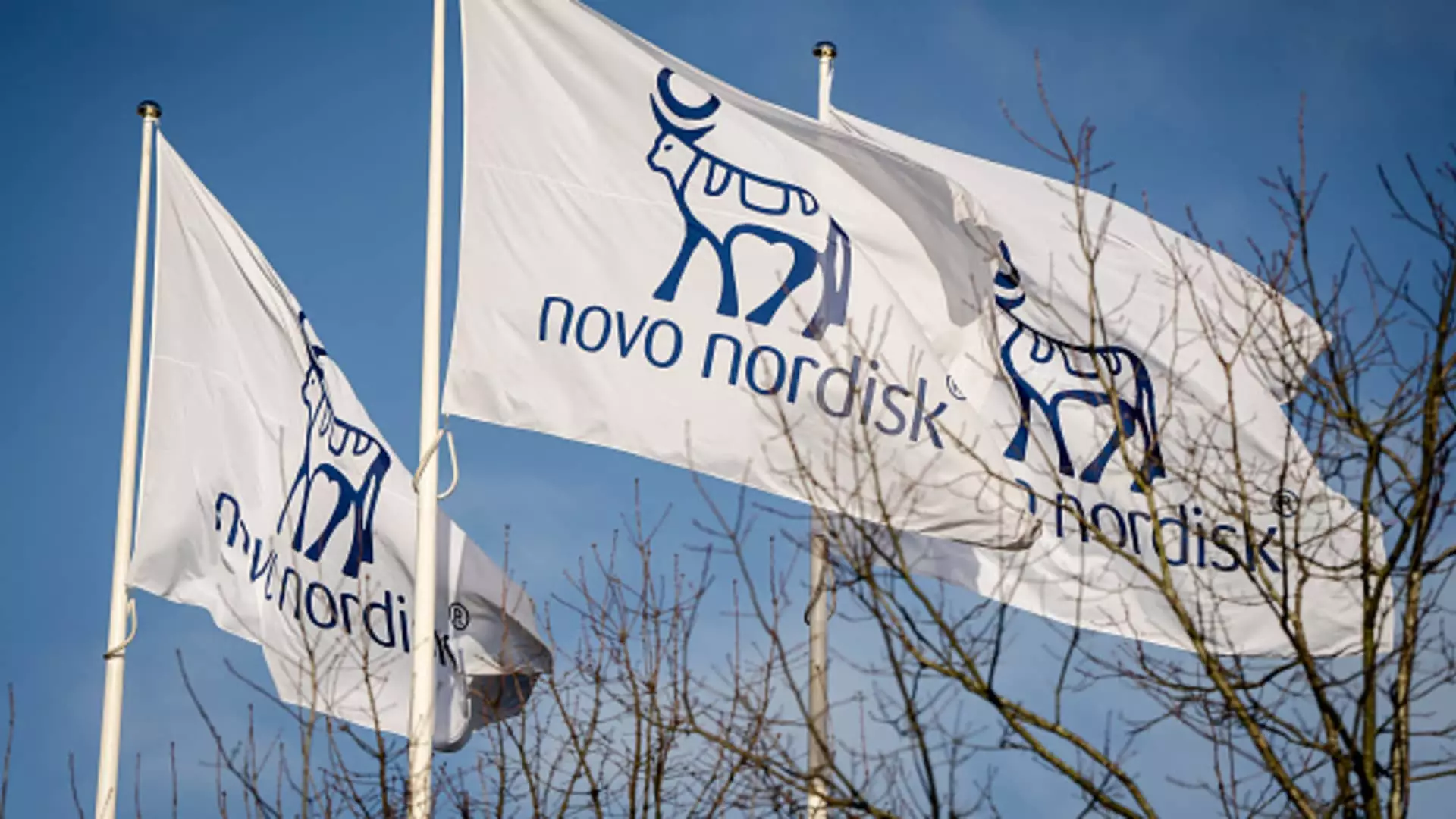Recent clinical findings surrounding Novo Nordisk’s Rybelsus, a once-daily oral medication for Type 2 diabetes, suggest the potential for profound impacts on cardiovascular health in patients. Designed to reduce both blood sugar levels and the risk of serious cardiovascular events, the data revealed at the American College of Cardiology’s Annual Scientific Session presents a compelling case for Rybelsus, particularly among those battling diabetes alongside heart disease. The study showed a 14% decreased risk of cardiovascular-related death, strokes, and heart attacks over an average of four years. This notable finding could significantly alter treatment pathways for millions of patients who grapple with these overlapping health issues.
Conventional wisdom often relegates diabetes management to injections, yet this pill offers a new avenue for those who dread needles or find adherence difficult due to the demanding regimen associated with injectable therapies. Stephen Gough, the global chief medical officer of Novo Nordisk, emphasizes the necessity of offering oral options—addressing patient psychology in management strategies. Rybelsus provides a crucial opportunity for patients to participate actively in their treatment plans, which is particularly important in the current landscape where patient autonomy is increasingly emphasized.
A Strategic Move by Novo Nordisk
Novo Nordisk’s timing and strategy appear astute in light of competitive pressures from other pharmaceutical giants like Eli Lilly, which are also exploring oral GLP-1 receptor agonists. By pushing Rybelsus through the approval process with a focus on cardiovascular protection, the company is not just reinforcing its foothold in diabetes care; it is positioning itself as an innovative leader in the therapeutic landscape for heart diseases as well.
Patients with diabetes often experience multiple comorbidities, including chronic kidney disease and high cardiovascular risk. Rybelsus, which contains the active ingredient semaglutide—the same component as Ozempic, a once-weekly injection—addresses a clear market need. The ability to deliver results similar to injectable therapies via an easier administration route could mean increased adherence and better overall health outcomes. As Rybelsus provides the dual benefits of diabetes management and cardiovascular risk mitigation, it may soon redefine doctors’ prescriptions and care strategies across the board.
Effective Management of Comorbidities
Although concerns about renal function emerged during the trial, the study primarily emphasized cardiovascular benefits. Notably, 12% of participants taking Rybelsus reported cardiovascular-related complications, compared to 13.8% among those on placebo—aligning with findings from past trials focused on injectable GLP-1 medications. The reduction in non-fatal heart attacks (by 26%) and strokes (by 12%) finalizes the argument in favor of Rybelsus as a tool to transition diabetes management into a more comprehensive health strategy.
Critically, the implications extend beyond diabetes alone. Preventing cardiovascular incidents among diabetic patients presents an immense opportunity to alleviate burdens on healthcare systems worldwide. Preventive measures yield long-term financial benefits, not only for patients but also for payers and healthcare providers. Rybelsus doesn’t merely represent a pharmacological advancement; it symbolizes a holistic approach to healthcare that acknowledges the multifaceted challenges that chronic diseases impose on patients— underscoring a pivotal shift towards integrated health management.
Empowering Patient Choice
The human element cannot be ignored. Many diabetic patients may feel intimidated by the prospect of injections, leading to treatment avoidance. By offering Rybelsus as an easy-to-swallow alternative, Novo Nordisk is addressing an often-overlooked aspect of drug compliance. Medical professionals increasingly recognize that patient comfort and choice are critical factors influencing treatment adherence. If patients are more willing to engage with their health management, the potential for improved health outcomes increases significantly.
Rybelsus enables healthcare providers to foster a personalized approach to diabetes treatment. Gough stated that health professionals should engage in discussions with patients, paving the way for collaborative decision-making. This process not only enhances the efficacy of treatment but also nurtures a sense of empowerment—which many patients, particularly those from marginalized backgrounds, desperately need.
Through open dialogue between doctors and patients regarding treatment options, Novo Nordisk is recalibrating the power dynamic within healthcare toward a more patient-centered model. This transformative approach is poised to leave its mark and could set a precedent for other pharmaceutical companies aiming to revolutionize chronic disease management.
The Need for Continued Vigilance
Even with promising data, it is essential to maintain a cautious optimism about Rybelsus’s role in diabetes and cardiovascular management. The study’s gastrointestinal side effects—commonly seen in GLP-1 receptor agonists—remain an area of concern and may deter some patients. Moreover, ongoing studies will be crucial in defining the long-term implications of using Rybelsus for diverse patient populations.
While the pill presents evident potential, the healthcare community must stay vigilant about side effects and individual patient responses to therapy. The success of Rybelsus may ultimately depend on how well clinicians can tailor treatment plans to meet the unique needs of each patient, thus reinforcing the essential principle that while advancements in medicine can pave the way for improved outcomes, the heart of healthcare remains fundamentally human.

